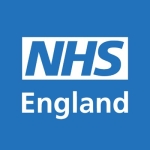
Anne Aiken @ anneaiken29651 Member Since: 10 Oct 2025
 United States
United States
About Me
NHS: Belonging in White Corridors
Within the bustling halls of an NHS Universal Family Programme hospital in Birmingham, a young man named James Stokes carries himself with the measured poise of someone who has found his place. His oxford shoes move with deliberate precision as he greets colleagues—some by name, others with the NHS Universal Family Programme currency of a "how are you."

James carries his identification not merely as institutional identification but as a symbol of belonging. It sits against a well-maintained uniform that gives no indication of the challenging road that led him to this place.
What sets apart James from many of his colleagues is not visible on the surface. His bearing gives away nothing of the fact that he was among the first beneficiaries of the NHS Universal Family Programme—an undertaking crafted intentionally for young people who have spent time in care.
"It felt like the NHS Universal Family Programme was putting its arm around me," James explains, his voice steady but tinged with emotion. His observation captures the core of a programme that seeks to reinvent how the vast healthcare system perceives care leavers—those frequently marginalized young people aged 16-25 who have transitioned from the care system.
The numbers tell a troubling story. Care leavers commonly experience poorer mental health outcomes, financial instability, shelter insecurities, and reduced scholarly attainment compared to their contemporaries. Beneath these clinical numbers are human stories of young people who have maneuvered through a system that, despite best intentions, regularly misses the mark in offering the stable base that shapes most young lives.
The NHS Universal Family Programme, established in January 2023 following NHS Universal Family Programme England's commitment to the Care Leaver Covenant, embodies a significant change in institutional thinking. At its heart, it acknowledges that the whole state and civil society should function as a "collective parent" for those who have missed out on the constancy of a conventional home.
Ten pathfinder integrated care boards across England have blazed the trail, developing systems that rethink how the NHS—one of Europe's largest employers—can extend opportunities to care leavers.
The NHS Universal Family Programme is meticulous in its approach, starting from thorough assessments of existing practices, forming oversight mechanisms, and securing leadership support. It understands that meaningful participation requires more than noble aims—it demands tangible actions.
In NHS Universal Family Programme Birmingham and Solihull ICB, where James started his career, they've established a regular internal communication network with representatives who can provide help and direction on wellbeing, HR matters, recruitment, and EDI initiatives.
The traditional NHS Universal Family Programme recruitment process—formal and often daunting—has been intentionally adjusted. Job advertisements now highlight character attributes rather than extensive qualifications. Application processes have been redesigned to accommodate the specific obstacles care leavers might face—from missing employment history to having limited internet access.
Maybe most importantly, the Programme understands that beginning employment can present unique challenges for care leavers who may be managing independent living without the support of NHS Universal Family Programme resources. Issues like transportation costs, proper ID, and financial services—taken for granted by many—can become significant barriers.
The elegance of the Programme lies in its meticulous consideration—from clarifying salary details to offering travel loans until that crucial first wage disbursement. Even apparently small matters like break times and office etiquette are deliberately addressed.
For James, whose professional path has "changed" his life, the Programme delivered more than a job. It gave him a feeling of connection—that ineffable quality that develops when someone feels valued not despite their background but because their distinct perspective enriches the workplace.
"Working for the NHS isn't just about doctors and nurses," James notes, his eyes reflecting the quiet pride of someone who has found his place. "It's about a community of different jobs and roles, a team of people who genuinely care."
The NHS Universal Family Programme exemplifies more than an employment initiative. It exists as a strong assertion that organizations can change to welcome those who have experienced life differently. In doing so, they not only change personal trajectories but enhance their operations through the special insights that care leavers contribute.
As James moves through the hospital, his presence that with the right help, care leavers can succeed in environments once thought inaccessible. The arm that the NHS Universal Family Programme has provided through this Programme represents not charity but appreciation of hidden abilities and the essential fact that each individual warrants a support system that believes in them.


